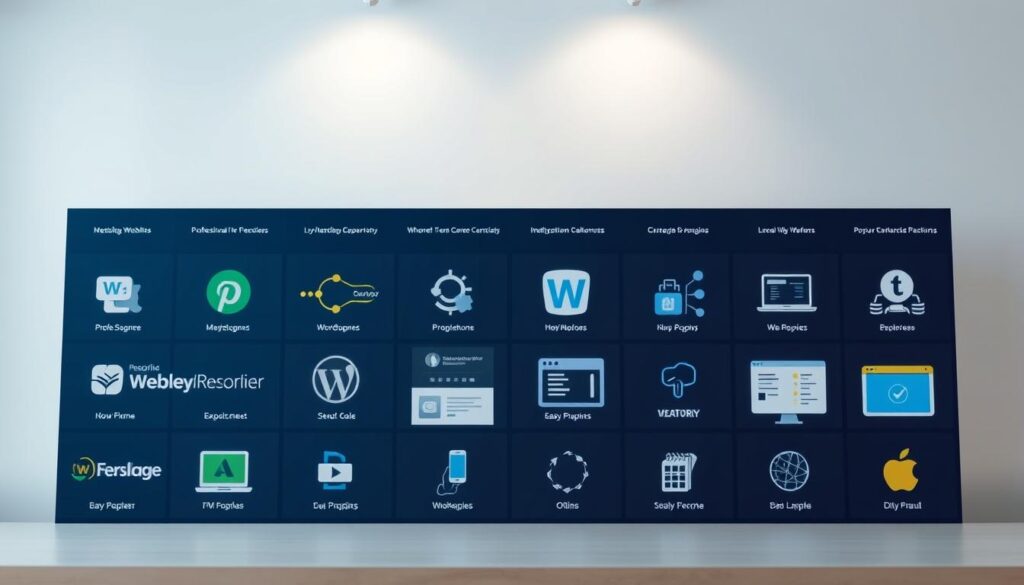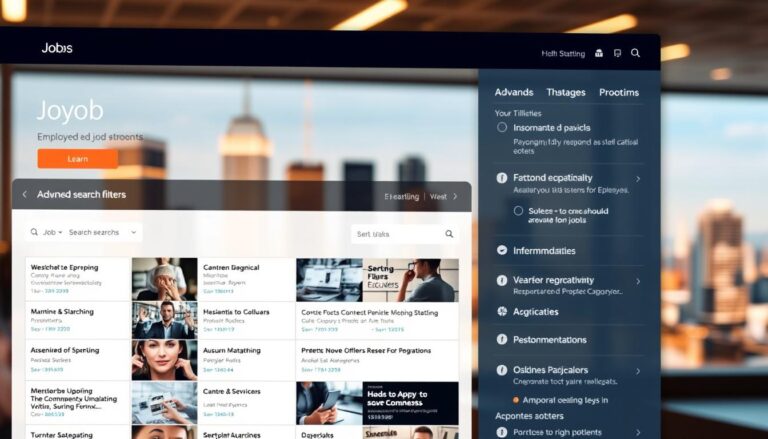Creating a Personal Website for Professional Use
In today’s digital age, establishing a strong professional online presence is crucial for career success. Having a personal website allows individuals to showcase their expertise, skills, and experience, setting them apart from others in their field.
A well-designed personal website can increase visibility, open up new career opportunities, and help individuals achieve their career goals. By having a professional online identity, professionals can demonstrate their capabilities and build a reputation that can lead to new opportunities.
Establishing a strong online presence is essential in today’s competitive job market. A personal website is a powerful tool that can help individuals take control of their online identity and advance their careers.
Why You Need a Professional Personal Website
In today’s digital age, having a professional personal website is no longer a luxury, but a necessity. It serves as a dynamic platform where you can showcase your work, share updates, and connect with others in your industry.
A professional personal website helps establish a strong online identity, making it easier for potential employers or clients to find and assess your professional capabilities. Unlike a static resume, a personal website can evolve with your career, highlighting your growth and new achievements.

By having a professional online presence, you open yourself up to new career opportunities. Whether you’re looking to attract new clients, collaborate with other professionals, or simply make yourself more visible to potential employers, a well-designed website can make a significant difference.
Investing in a professional personal website is an investment in your future. It’s a powerful tool that not only showcases your current skills and experience but also demonstrates your commitment to your profession.
Planning Your Professional Website
To build an effective professional website, you must start with a solid plan. This involves several key steps that help ensure your website meets its intended goals and resonates with your target audience.
Defining your website’s purpose and goals is the first crucial step. This could be to showcase your portfolio, attract new clients, or establish your brand as an industry thought leader. Clear goals will guide the development of your website.
Understanding your target audience is equally important. Who are they? What are their needs and preferences? How can your website provide value to them? Answering these questions will help you tailor your content and design to effectively engage your audience.
Determining the content and structure of your website is the next step. This involves deciding on the pages you need, such as a homepage, about page, services page, and contact page. Organizing your content in a logical and accessible manner is key to a positive user experience.
Finally, planning the design and layout ensures your website is visually appealing and user-friendly. This includes choosing a responsive design, selecting appropriate colors and fonts, and ensuring easy navigation.
By carefully planning these elements, you can create a professional website that effectively communicates your message and achieves your online goals.
Creating a Personal Website for Professional Use: Platforms and Tools
With numerous options available, selecting the ideal platform for your personal website can be a daunting task. The choice of platform depends on your technical expertise, the purpose of your website, and your desired level of customization.
Website builders like Wix, Squarespace, and Weebly offer drag-and-drop tools that make it easy to create a website without needing to know how to code. These platforms are ideal for those who want a straightforward, user-friendly experience.

For those seeking more flexibility and control, CMS options like WordPress, Joomla, and Drupal are highly popular. WordPress, in particular, stands out due to its vast community, extensive plugin library, and adaptability to various website needs.
When choosing a CMS, consider factors such as security, scalability, and ease of use. WordPress, for instance, offers a wide range of themes and plugins that can enhance your website’s functionality and appearance.
In conclusion, the choice between website builders and CMS options depends on your specific needs and preferences. By understanding the features and benefits of each platform, you can make an informed decision and create a professional website that effectively represents your brand.
Designing a Professional Website That Impresses
The key to a successful professional website lies in its design and user experience. A well-crafted website not only showcases your professional brand but also provides visitors with a seamless and engaging experience.
When it comes to designing a professional website, several elements are crucial. First, the color scheme and typography should reflect your brand’s identity and be consistent throughout the site. The choice of imagery is also vital, as it should be relevant, high-quality, and used in a way that enhances the content rather than overwhelming it.

A significant aspect of website design is ensuring that it is responsive. With the majority of internet users accessing websites through mobile devices, a responsive design is no longer a luxury but a necessity. It ensures that your website adapts to different screen sizes and devices, providing an optimal viewing experience.
Furthermore, the user experience plays a critical role in retaining visitors and encouraging them to explore your site further. This involves creating an intuitive navigation system, clear calls-to-action, and fast loading speeds. By focusing on these aspects, you can significantly improve the overall user experience.
In conclusion, designing a professional website that impresses requires careful consideration of both its aesthetic appeal and functionality. By focusing on a cohesive design, responsive layout, and positive user experience, you can create a website that not only looks professional but also effectively serves your career goals.
Essential Content and Optimization for Career Success
Creating a strong online presence requires high-quality content and optimization. To achievecareer success, it’s crucial to have a professional website that showcases your skills and experience.
High-quality content is the backbone of a successful professional website. It should be relevant, informative, and engaging. To create effective content, focus on the needs and interests of your target audience. Use a friendly tone and avoid jargon or overly technical language.
When creating content, consider the following:
Relevance: Ensure that your content is relevant to your career goals and target audience.
Uniqueness: Use unique and original content that showcases your personality and style.
Value: Provide value to your audience by sharing your expertise and knowledge.

Optimization is also critical for career success. It involves making your website search engine friendly, so it appears in search results and attracts potential employers or clients. To optimize your website, use relevant keywords, meta tags, and descriptions.
Some key optimization strategies include:
Keyword research: Conduct thorough keyword research to identify relevant terms and phrases.
On-page optimization: Optimize your website’s structure, content, and meta tags.
Regular updates: Regularly update your website with fresh and relevant content.
By focusing on essential content and optimization, you can create a strong online presence that helps you achievecareer success. Remember to regularly review and update your website to ensure it remains relevant and effective.
Conclusion
Creating a personal website is a crucial step in achieving career success. By having a professional online presence, individuals can showcase their skills, experience, and achievements to potential employers and industry peers.
A well-designed personal website can help establish credibility and open up new opportunities. It serves as a digital portfolio, allowing visitors to explore your work and accomplishments in a structured and engaging manner.
By following the steps outlined in this article, you can create a personal website that effectively promotes your career goals. With a strong online presence, you can increase your visibility, build your professional brand, and take a significant step towards achieving career success.






